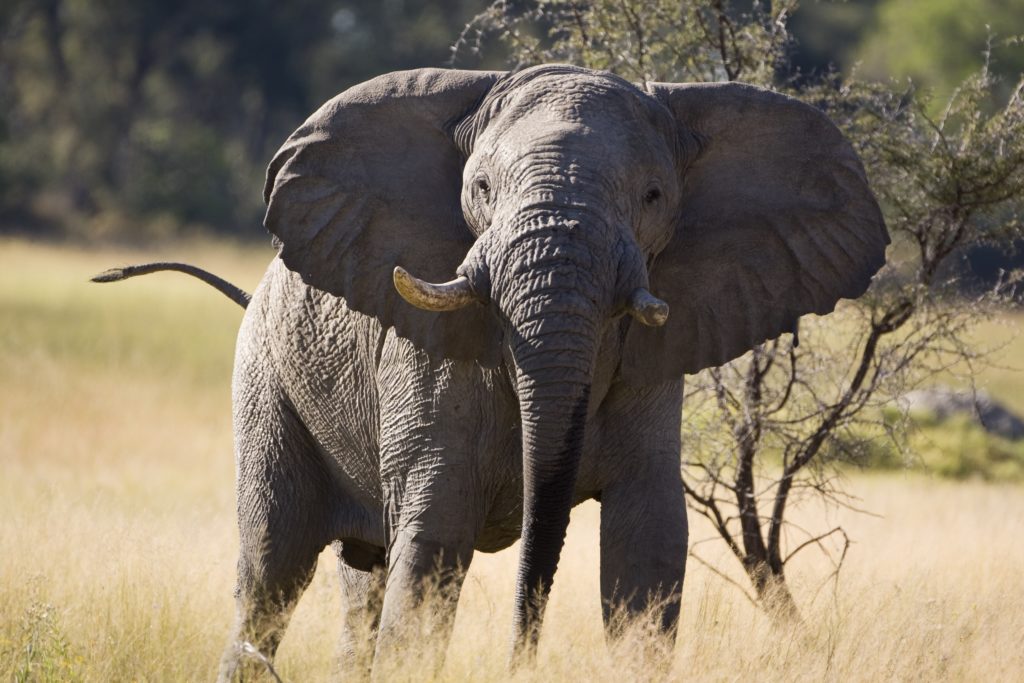The U.S. Fish and Wildlife Service (USFWS) is proposing yet again to make the import of elephant hunting trophies more difficult—ignoring the fact that 80% of the world’s elephants inhabit the countries where the species is sustainably hunted.
Today, the U.S. Fish and Wildlife Service (USFWS) released a proposed amendment to the regulations governing the import of African elephants, both alive and as trophies. While the stated purpose is to benefit African elephant conservation, this added red tape will only further infringe upon the rights of Africans to manage African wildlife. With respect to trophies, the proposal would require that African range states provide an annual certification regarding their elephant management and conservation programs and would prohibit the import of trophies from any country whose national laws have not been deemed to fully implement the Convention on International Trade in Endangered Species (CITES).
Elephant hunting is an important management and conservation tools for the southern African countries with the world’s largest elephant populations. In these countries, elephant are not considered endangered. In fact, they often create real burdens for the local and rural communities who share the same land, including human-elephant conflict and crop raiding. Elephant hunting generates funds and incentives to reduce conflicts, combat poaching, and secure habitat in these countries.
While hunting remains an effective tool on the ground, importing elephant trophies into the United States can take years and is filled with cumbersome red tape. Range nations and rural community organizations have spoken out against these restrictions. But rather than assist African countries with elephant management, the USFWS is proposing to add more bureaucracy to the elephant issue.
First, the USFWS is proposing to require range states to certify, among other things, that the elephant population is stable or increasing and “sufficiently large to sustain sport hunting at the level authorized by the country,” the hunting is sustainable, and the hunting is legally conducted. The range states already do this through the CITES process of providing export permits for elephant hunting trophies. Each export permit is already a certification that the hunt was non-detrimental and legal.
The USFWS is also proposing to require that range states certify that funds from the hunting are “applied primarily to African elephant conservation, including reporting on how those funds have been or will be utilized for African elephant conservation activities.” This requirement makes little sense. In most of the countries where elephant are hunted, the species is not considered endangered nationally. Forcing the range states to reinvest the funds from elephant hunting just in the conservation of elephant is like forcing Pennsylvania to reinvest revenues from deer hunting in deer conservation. Why not use the funds for species that are truly at risk, like black rhino, or even a species with a smaller population like lion? This is just an example of the USFWS pushing the priorities of animal rights groups, instead of true conservation policy—as well as infringing on the decision-making of the African nations who know which species would benefit from greater conservation funding.
Further, in addition to restricting live imports, the USFWS is proposing to only allow the import of elephant trophies on “Category 1” of the CITES National Legislation Project. This means the country has fully implemented CITES for all species, including animals, fish, and plants. The proposed rule will likely prevent the import of elephant trophies from Botswana, Tanzania, Zambia, and Mozambique, in the near future, as these countries are in Category 2. Limiting imports to Category 1 countries has nothing to do with their elephant management; with respect to Tanzania and Botswana, for example, the CITES National Legislation Project has not found any issues with the wildlife laws that apply to elephant exports. And it is inconsistent for the USFWS to demand that range countries make specific certifications regarding elephant hunting revenues and elephant management, but then for the USFWS to focus broadly on all laws implementing CITES, including those that apply to fish and plants, and not to focus on the range state laws governing elephant exports.
SCI opposes the proposed rule, for one simple reason. It will not stop poaching, or human-wildlife conflict, or ensure the protection of biodiversity. The only thing it will do is infringe on the conservation of elephants by range state governments, local stakeholders, and local communities. SCI respectfully request that the USFWS reconsider its priorities. Instead of pandering to Western animal rights groups, the USFWS should look to the countries who are successfully conserving their elephants as examples and models—and allow the import of hunting trophies with fewer restrictions.
This proposed rule is not final as there is a 60-day comment period. Stand up for hunting, African wildlife management, and true conservation by contacting the USFWS today to OPPOSE the proposed revisions to this new rule.




